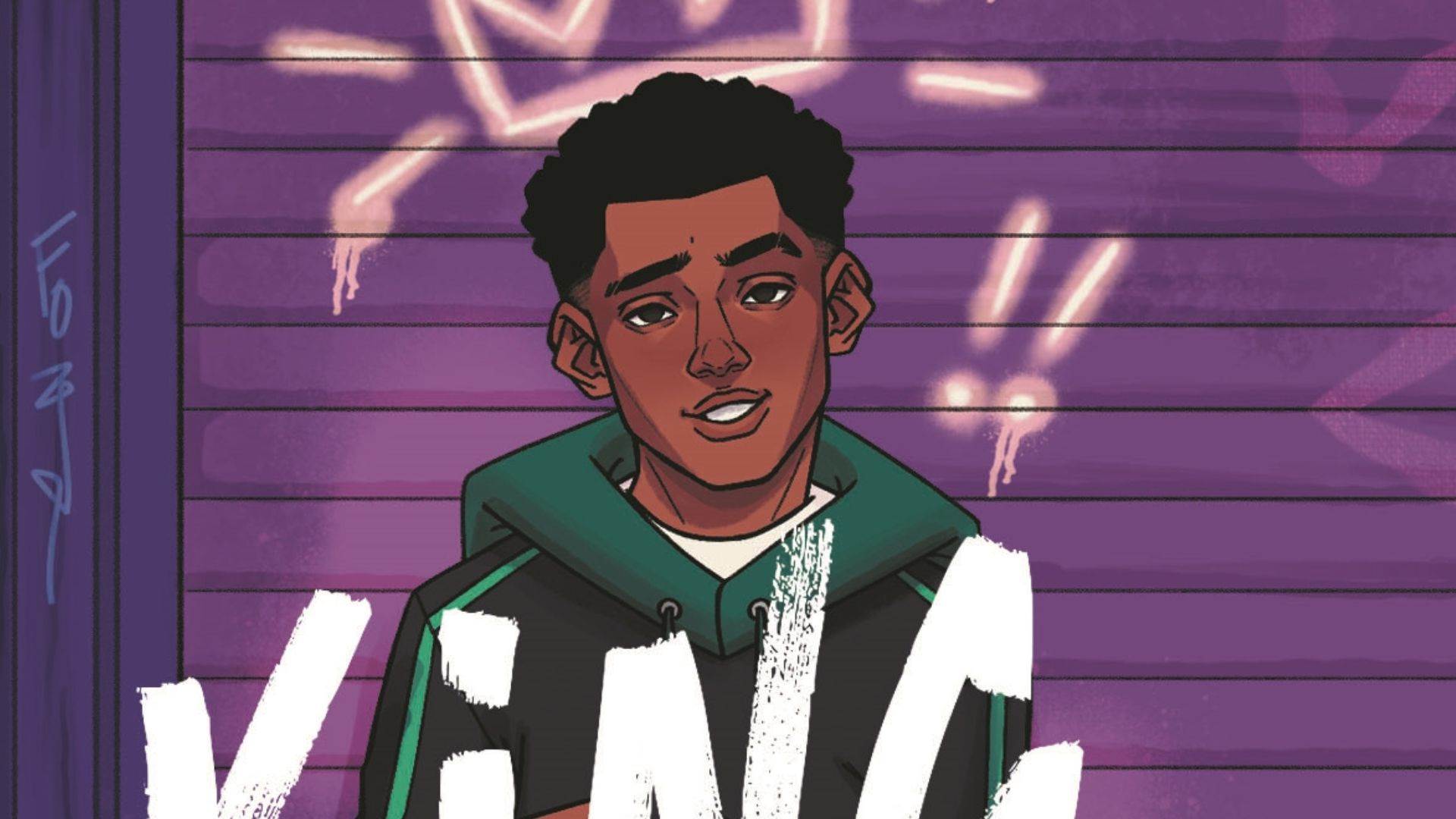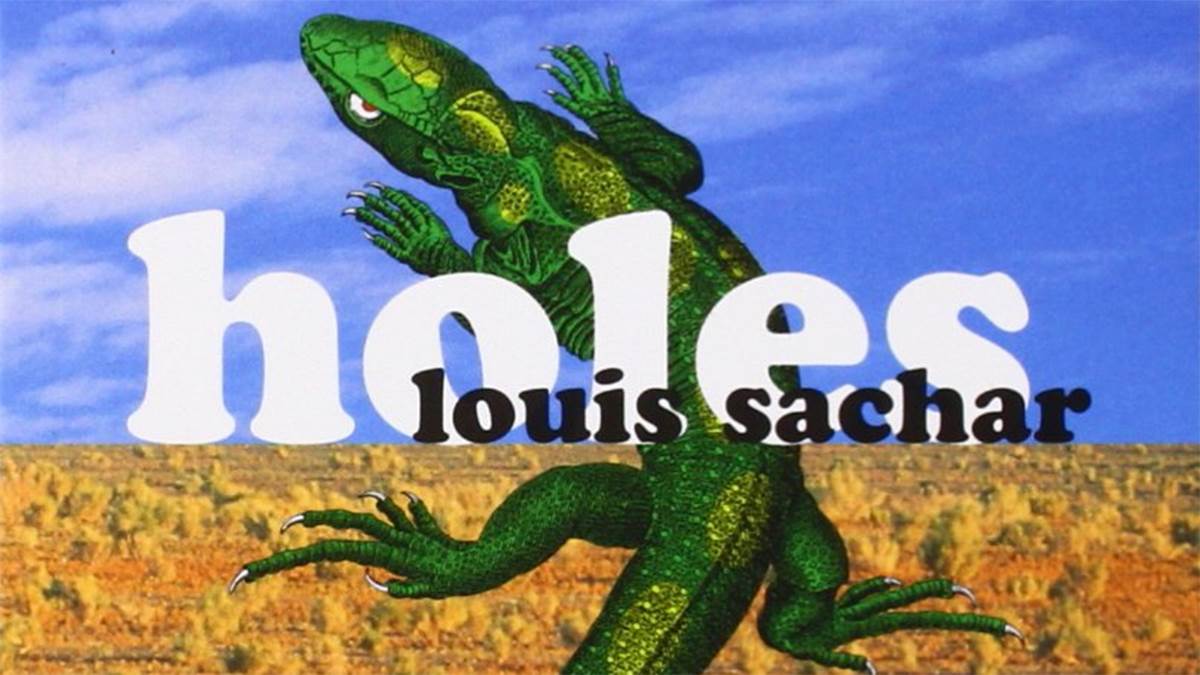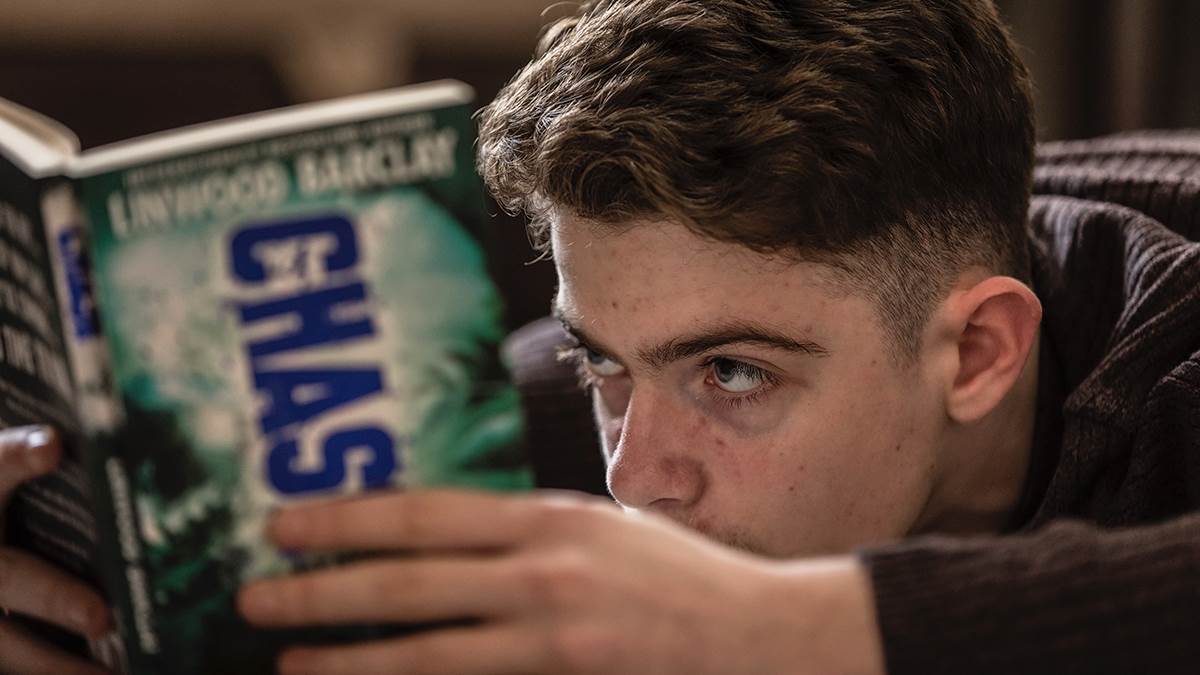How to keep teenage boys reading
Published on: 18 April 2024
BookTrust research shows the long-term benefits of reading. However, many teenagers stop picking up books at a crucial age. We asked author Nathanael Lessore to discuss the barriers and possible incentives.
 The cover of King of Nothing by Nathanael Lessore
The cover of King of Nothing by Nathanael Lessore
The drop-off in male readers in their teens is like having hundreds of holes below the deck of a sinking ship, and librarians, teachers and educators are there trying the plug holes any way they can. Shout out, librarians.
Spoiler alert. It all boils down to authentic representation in books, and encouragement to read outside of school. No beating around this bush. Just in case you get bored with the rest of this blog, these are my two takeaways.
Reading at School vs Reading at Home
As a teenager, I myself was part of the unsolved problem of teen boys who simply stop reading. I visited my school library twice over five years in secondary school. I couldn’t even blame screens, as social media and fast content wasn’t as prevalent or accessible back then.
What’s wild is that I loved reading at school. We all did, especially enjoying books in English lessons like Of Mice and Men by John Steinbeck, Holes by Louis Sachar, and Great Expectations by Charles Dickens.These were never a chore. Outside of the classroom was a different story.
The problem?
Reading is fun, but books are boring.
How can you compare books to video games and TikTok? Given the choice of a mobile phone with a smooth screen and YouTube, or a book sitting next to it, teen boys will always pick up the phone.
Yet reading in English lessons is still as fun and interactive as ever. Shoulders don’t slump and there’s no moaning or weeping or gnashing of teeth at the prospect of reading literature in lessons.
A little encouragement goes a long way when it comes to reading outside of school. I always tell teenagers on my school visits that teens who read are statistically more likely to have higher paid jobs and see more of the world as adults. That’s across all genders and economic backgrounds.
When I drop this nugget of information, their eyes light up and they generally become more noticeably attentive.
 The cover of Holes by Louis Sachar
The cover of Holes by Louis Sachar
Authentic representation
For me, the idea of reading was much worse than the practicality of it; getting lost in worlds and characters would take up hours of my life only when the mood took me.
But without any encouragement, there was no incentive to read. My parents tried, with relative success in my early teens, to recommend and buy books that I’d enjoy. The boy wizard, the hobbits, the shopaholic with the green scarf, I read it all.
And over time, it dawned on me that none of the heroes in any of my favourite books looked like me. My love for reading began dying a slow death.
Plus, the older I got, reading became much less “enforced”, for want of a better word.
I can’t blame my parents. They tried early on, but they had jobs, and school runs, and kids to feed. Encouraging me to read for pleasure wasn’t worth the space on their to-do list.
Save for a spell of Malorie Blackman books (which I loved, which was like CPR to my dead relationship with books), all of my favourite heroes were unrelatable.
The reading drop-off of ethnically diverse teenage boys is the biggest. We know the importance of diversity in books. And real diversity, not a vague idea of what diversity looks and sounds like. Some would argue that it needs to come from the source. From lived experience, or listening carefully to lived experience. There is talent to be found where talent is sought.
Shout out, my publishers, Hot Key Books, and my agent at Darley Anderson Agency for championing diverse voices. Never awkward or forced, they see a gap in the market that is underserved due to the lack of authentic representation discussed.
It goes without saying that this is more than a question of skin colour. There is a certain type of person that seems to dominate the world of publishing, and white working class is not one of them. Publishers are trying to address this, but progress is slow.
FYI shoehorning people of colour into the best friend role only goes so far. When it comes to ethnic minorities in books, it’s important to be specific if you really want teen boys to relate. For example, This is How You Fall in Love by Anika Hussain isn’t just about a brown girl named Zara, it’s a celebration of desi culture. In the same vein, making your teen character black or light-skinned isn’t enough. Are they Caribbean? African? What part of Africa? Understanding culture and race are two different things. For authentic representation, I’d argue that one should understand both.
Encouragement
The light at the end of the tunnel is that most of the school visits I get to do as an author have a library with a queue of kids waiting for it to open at lunch time. Librarians care and encourage, often buying their own books due to lack of financial investment.
I’ve even seen entire shelves dedicated to diverse stories, including LGBTQ+ heroes, ethnically diverse heroes, stories that range from one culture to another, unique stories that are told through the eyes of characters we don’t usually hear from. There are a lot more such stories published now.
Librarians, teachers, and educational resources are doing so much to get these stories to their intended audience, through writing competitions and giveaways and school visits, thus marrying my two points of authentic representation and encouragement to read.
The fact that this conversation is taking place shows care from the literary world for the underserved market of teen boys, too old for The Diary of a Wimpy Kid and too young for YA books.
A bit like the “kick racism out of football” campaign, the work will continue until the problem is solved, bittersweet as that may be. And if the problem is never solved, an ongoing reminder might be the next best thing.
If you’ve made it this far down, I thank you, and will ask this of you...
Please encourage ALL teen boys to read. Please encourage them to write. Please let them know their stories are fascinating and important. And I’ll continue to do the same.
Steady for This and King of Nothing, by Nathanael Lessore, are out now.
Bookbuzz is BookTrust’s flagship programme to keep teenagers reading. Find out more and register your school here.
Topics: 12+, Bookbuzz, Personal/social issues, Diversity (BAME), Features






